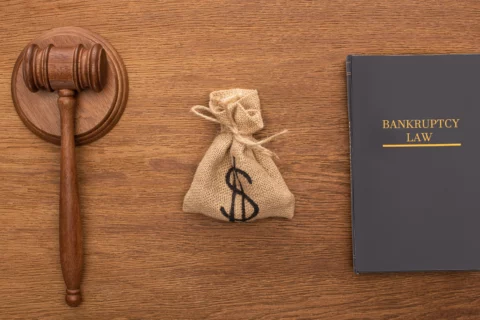Declaring Bankruptcy: Means Test and Chapter 7
What is a bankruptcy means test?
In the bankruptcy process, a means test determines who is qualified for debt-settlement through a bankruptcy Chapter 7. Family size, expenses, and income are taken into consideration to determine if a debtor has enough income to be able to repay outstanding debts.
(Bankrupt individuals who do not pass the means test or who wish to keep certain property can instead opt for restructuring. Filing for bankruptcy under Chapter 13 would allow you to restructure debts you owe and pay back most of it through a repayment plan.)
What is the means test for?
The means test is composed of two parts that are both meant to see whether debtors have enough disposable income that can be allocated to paying off creditors. Bankruptcy attorneys fill out the required form together with other supporting documents. The bankruptcy court will then evaluate the submitted paperwork.
This test is primarily for consumer bankruptcy or those with medical debts or credit card debts. It is not required for business bankruptcy. This article explores this bankruptcy procedure and how the means test affects your bankruptcy case.
- Step 1
Broadly, this part checks your household income. Following bankruptcy laws, it must be below the median income in your state. You can begin by collecting proof of your monthly income for the last six months. If your income does not exceed the median in your state, you pass this part and hopefully can file a Chapter 7.
- Step 2
 This part is about expenditure. Prepare documentation of your groceries, rent, medical costs, clothing, and other living expenses for the last six months. These are deducted from your income and what’s left is considered ‘disposable’. Under the bankruptcy code, the latter could be allocated to pay back your lenders.
This part is about expenditure. Prepare documentation of your groceries, rent, medical costs, clothing, and other living expenses for the last six months. These are deducted from your income and what’s left is considered ‘disposable’. Under the bankruptcy code, the latter could be allocated to pay back your lenders.
Be extra thorough when gathering documents for the above. Bankruptcy law is strict. Avoid making crucial mistakes and do not omit items or list down inconsistent values (say, different amounts for monthly payments). Bankruptcy attorneys could help ensure you do this part correctly.
When disposable income is low enough, you may qualify to file a Chapter 7. (If you decide on filing a Chapter 13, this would factor into your payment plan. A bankruptcy petition lawyer can explain this to you in more detail).
What if I pass?
Once you pass, discuss with your attorney if you should push through with a Chapter 7 type of bankruptcy. If you wish to have your unsecured debt discharged, it could indeed be the right choice. Discharging your credit card debt, medical bills, and other unsecured debts through Chapter 7 could be the best debt-relief option for you.
Take note, however, that different types of bankruptcy work best in different circumstances. Make sure you get a reliable bankruptcy attorney helping you as you make your decision.
What if I fail?
Although you cannot appeal, it does not automatically make filing a Chapter 13 your only option. Since the income and expenses submitted are from the last six months, you can take the test again after six months.
(If you fail again or if you cannot wait for another six months before you file for bankruptcy, you might need to settle for a Chapter 13. As mentioned, under this bankruptcy type, you pay back what is owed in three to five years.)
Undergoing bankruptcy counseling, contacting a bankruptcy law firm, and taking the means test are a few of the first steps that you must take when filing for bankruptcy.
Rebuilding credit after bankruptcy could be difficult. However, keep in mind that secured loans and secured credit cards help counter the bankruptcy filing on your credit report.
Do you need more bankruptcy information? Talk to a bankruptcy attorney now!
If you are considering bankruptcy, it is important to understand bankruptcy rules. Our experienced bankruptcy lawyers in Illinois can address your queries so you can begin the first step to a fresh start. Contact us at Cutler & Associates, LTD and schedule your free initial consultation.


